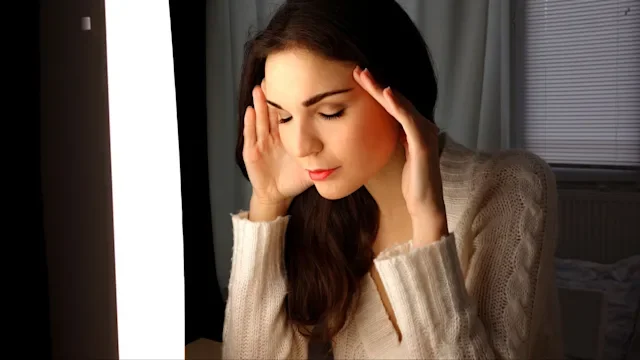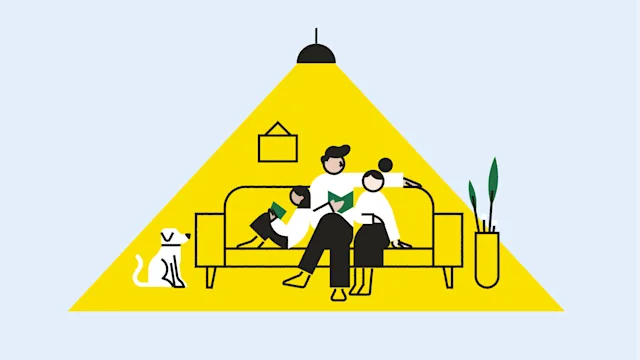Key takeaways:
MDMA is an illegal, synthetic drug that causes increased energy, pleasure, and self-awareness.
MDMA-assisted therapy (MDMA-AT) is only available in some states and in very specific situations. When combined with talk therapy, it may be helpful for certain mental health conditions, like post-traumatic stress disorder (PTSD) and social anxiety in people with autism.
More research is needed to understand whether MDMA-AT could be helpful for treating other kinds of anxiety and depression.
You may have heard of MDMA (3,4-methylenedioxy-methamphetamine). It’s a psychedelic drug that goes by many other names, including “molly” and “ecstasy.” MDMA can increase energy and feelings of happiness, empathy, openness, and social connection. It can also cause serious side effects, like a dangerous increase in body temperature.
Even though MDMA is illegal today, it was once used as a psychotherapy tool back in the 1970s. While it showed benefits in psychotherapy, MDMA got a bad reputation when it became a popular recreational drug. By 1985, it became illegal in most countries.
After that, MDMA-assisted therapy (MDMA-AT) could only be used legally as part of a clinical trial.
Search and compare options
Since then, researchers have taken a renewed interest in psychedelic-assisted therapy. Strong research supports MDMA-AT for people with post-traumatic stress disorder (PTSD). But what about using it as treatment for other mental illnesses? Here’s what the science says about MDMA-AT for depression and anxiety.
How does MDMA work for depression and anxiety?
Most of the research on MDMA-AT has focused on people with PTSD. There hasn’t been as much research on using MDMA to treat depression and anxiety. But scientists believe it might help in different ways.
MDMA boosts the activity of certain chemical messengers in your brain and body, including:
Serotonin, which balances mood and may lead to an increased sense of connectedness
Norepinephrine, a chemical that increases energy and alertness
Dopamine, which plays a role in pleasure, motivation, and focus
Oxytocin, a hormone important for social learning, sexuality, trust, and empathy
MDMA also affects activity in areas of your brain that control mood, emotions, and memory. It may also help your amygdala and hippocampus (the brain’s memory center) communicate better.
Because of these effects, MDMA might make it easier to talk about stress and trauma or to reprocess painful memories. It could also help with:
A positive mood and lower stress levels
Being less defensive when talking about difficult experiences
Trusting and opening up to others
Seeing problems in a new way
A better ability to remember and confront memories
Understanding emotional and social relationships better
Psilocybin for depression: Most research on psilocybin (a substance found in certain mushrooms) is in people with depression. So far, the results are showing positive effects.
Ketamine and depression: Ketamine has been used for different things over the decades, but there’s growing research on ketamine as a treatment for depression.
Adaptogens and anxiety: These plant-based treatments may help with mood disorders in some people. Here’s what you need to know about them.
But recreational MDMA use can sometimes cause anxiety, depression, or panic attacks — especially in the days or weeks after using it. This is sometimes called the “mid-week blues.” It’s not clear if MDMA itself causes these problems, or if other things — like contamination, dosage, or multiple substance use — are to blame.
So far, most research on MDMA-AT for anxiety and depression has focused on two groups of people: people with end-of-life anxiety and people with autism who have social anxiety. More research is needed to understand if the benefits can apply to wider populations.
Can MDMA help social anxiety?
Maybe — but the research is limited. One trial using 2 sessions of MDMA-AT found that it led to less social anxiety in people with autism at 6 months. But this study was very small — it only included 12 people. And there hasn’t been any published research to support these results since.
Read more like this
Explore these related articles, suggested for readers like you.
Theories of why MDMA might be helpful for social anxiety include:
MDMA might help people change how they feel about negative memories, especially memories about themselves or relationships with others.
MDMA may be able to promote positive emotions, including toward yourself.
MDMA may reduce fear in social situations and help people feel more connected to others.
Can MDMA help end-of-life anxiety?
Nearly half of people with a life-limiting illness feel anxiety or depression. Palliative care experts are looking into newer ways to help, including psychedelics like MDMA.
One study suggests MDMA-AT may help ease anxiety related to life-threatening illness or help people who are dying find a sense of meaning and purpose. But more research is needed to say for sure how well this works.
What does MDMA-assisted therapy (MDMA-AT) for depression look like?
MDMA-AT is talk therapy combined with MDMA. When researchers do MDMA-AT with study participants, they follow special guidelines. These guidelines, created by the Multidisciplinary Association for Psychedelic Studies (MAPS), are based on methods created by therapists who studied MDMA before it became illegal.
Let’s take a look at what that process looks like.
Preparatory session(s)
These sessions lay the groundwork for the MDMA-AT process. They might include:
Medical screening to be sure MDMA use is safe
A meeting between the therapist and participant to establish a relationship, create a safe physical and mental environment, and set goals
Education about the possible physical and psychological effects of MDMA
Participants may have more than one preparatory session. They move to the next step when both the participant and therapist feel ready.
MDMA-assisted session
The MDMA-assisted session begins with the study participant taking a capsule of MDMA. The full session lasts several hours. Sometimes participants stay overnight at the clinic or with informed friends or family.
During the session, participants sit or lie down in a comfortable room. They wear eye shades and headphones with a preset music playlist. Music is often used in psychedelic therapy and is shown to help improve the experience and outcome of the session.
The session may alternate between periods of introspection (thinking to oneself) and periods of interaction with the therapists. A therapist or other facilitator stays with the participant at all times.
Everyone’s personal experience will be different, and sometimes the session may be challenging. During the session, people may:
See and hear things differently (like brighter, louder, or clearer for example)
Rethink aspects of their lives from a new perspective
Feel like they’re reliving or reexperiencing past moments
Feel less fear
Talk more openly about thoughts or memories that cause anxiety or depression.
Therapists don’t lead or guide the session. Instead, they:
Listen and encourage trust
Ensure participant safety
Take notes or recordings to help participants recall their experiences
Integration
After the session, the participant and therapist(s) work together to make sense of the experience. The outcome may not be clear right away. That’s because the psychedelic experience can be confusing and hard to describe.
There are many definitions of integration. In general, this is the process of taking lessons or insights from the session and using them in everyday life. This process usually involves methods of talk therapy. Different models of integration focus on:
Spiritual growth
Relationships
Self-reflection
The body or nature
A range of practices may be part of the process, like exercise, meditation, healthier habits, or art therapy.
The number of sessions for each step may vary. For example, in the MAPS research program, there are two MDMA sessions (separated by a month), three preparatory sessions, and three or four integration sessions before and after each MDMA session.
What are the risks of MDMA?
MDMA comes with risks, and some of them can be life-threatening. Soon after taking MDMA, you may develop:
Large, dilated pupils
Uncontrollable clenching of your jaw
Nausea and decreased appetite
Tingling sensation in your arms or legs
Faster heart rate
Elevated blood pressure
Difficulty concentrating or remembering things
Difficulty balancing
More serious side effects of MDMA use include:
Overheating: A fast rise in body temperature can occur, especially in a warm environment like a dance club. When it happens, it’s often fatal.
Harm to your organs: Heart problems (like an abnormal rhythm or heart attack) and liver damage may occur after taking MDMA.
Death: Although rare, overdoses leading to death are possible. This is more likely when taken recreationally because of contamination or dangerous interactions with other recreational or prescription medicines.
Is MDMA addictive?
It’s unclear if MDMA is addictive. Some people report continued use of MDMA despite negative side effects. Others need more of it over time to feel the same positive result. But a small study suggested MDMA-AT may help treat alcohol use disorder. In addition to lower alcohol consumption, people reported no interest in using illegal MDMA after their sessions.
Does MDMA damage the brain?
It’s unclear if MDMA causes long-term brain damage. In animal studies, MDMA has toxic effects on nerve cells in the brain. A review paper concluded that people who repeatedly use MDMA experienced changes in brain function and cognition. It’s possible that these changes may be reversed over time when a person no longer uses MDMA. But the long-term effects haven’t been adequately studied.
Theoretically, risks might be lower in MDMA-AT. That’s because the doses are small, and the number of sessions are limited. But it’s impossible to say for sure.
Is MDMA-AT safer than MDMA?
Yes, MDMA-AT is likely safer than recreational use because:
People go through a medical screening to make sure participation is safe.
The dose and purity of MDMA are carefully monitored.
Healthcare professionals are present to make sure participants are safe.
What drugs interact with MDMA?
It’s risky to combine MDMA with other drugs or medications. Avoid taking MDMA in combination with:
Antidepressants: Commonly prescribed antidepressants include selective serotonin reuptake inhibitors (SSRIs) and monoamine oxidase inhibitors (MAOIs). Combining MDMA with SSRIs or MAOIs can lead to “serotonin syndrome” — a dangerous and often deadly condition. Bupropion is a norepinephrine/dopamine-reuptake inhibitor (NDRI) that, when combined with MDMA, increases blood levels of both substances, making overdose more likely.
Amphetamines and stimulants: Cocaine or stimulant medications like methylphenidate (often used to treat ADHD) can cause a dangerous increase in heart rate when combined with MDMA.
Alcohol: Mixing alcohol with MDMA may be dangerous because it increases the risk of dehydration and low sodium levels.
Opioids, anesthetics like ketamine, and muscle relaxers: These increase the risk of death when mixed with MDMA.
The bottom line
Experts don’t know enough about MDMA yet to say for sure if it can treat anxiety or depression. But there’s some evidence that MDMA-AT might be helpful for people with PTSD and certain types of anxiety. These same benefits might also help more people with anxiety or depression, but more research is needed to confirm this.
Right now, MDMA isn’t approved for any medical use. As researchers learn more about MDMA-AT, they’ll be able to better understand its role in mental health treatment.

Why trust our experts?



DISCLAIMER: MDMA-AT is only legal in some states when used as part of a government-approved clinical trial under limited circumstances, but not in others. MDMA is still illegal under federal law.
References
Barone, W., et al. (2022). Facing death, returning to life: A qualitative analysis of MDMA-assisted therapy for anxiety associated with life-threatening illness. Frontiers in Psychiatry.
Bathje, G. J., et al. (2022). Psychedelic integration: An analysis of the concept and its practice. Frontiers in Psychology.
Cajanding, R. J. M. (2019). MDMA-associated liver toxicity: Pathophysiology, management, and current state of knowledge. AACN Advanced Critical Care.
Carhart-Harris, R. L., et al. (2014). The effects of acutely administered 3,4-methylenedioxymethamphetamine on spontaneous brain function in healthy volunteers measured with arterial spin labeling and blood oxygen level–dependent resting state functional connectivity. Biological Psychiatry.
Cohen, I. V., et al. (2021). Concomitant drugs associated with increased mortality for MDMA users reported in a drug safety surveillance database. Scientific Reports.
Conner, K. M. (2023). Everything old becomes new again: Five things to know about psychedelics in palliative care. EBSCO.
Danforth, A. L., et al. (2018). Reduction in social anxiety after MDMA-assisted psychotherapy with autistic adults: A randomized, double-blind, placebo-controlled pilot study. Psychopharmacology.
Dobry, Y., et al. (2013). Ecstasy use and serotonin syndrome: A neglected danger to adolescents and young adults prescribed selective serotonin reuptake inhibitors. International Journal of Adolescent Medicine and Health.
Docherty, J. R., et al. (2021). Cardiovascular and temperature adverse actions of stimulants. British Journal of Pharmacology.
Dunlap, L. E., et al. (2018). Dark classics in chemical neuroscience: 3,4-methylenedioxymethamphetamine (MDMA). ACS Chemical Neuroscience.
Endocrine Society. (2022). Adrenal hormones.
Feduccia, A. A., et al. (2018). MDMA-assisted psychotherapy for PTSD: Are memory reconsolidation and fear extinction underlying mechanisms? Progress in Neuro-Psychopharmacology and Biological Psychiatry.
Fineberg, S. K., et al. (2016). Oxytocin and the social brain. Biological Psychiatry.
Gillman, P. K. (2017). Monoamine oxidase inhibitors, opioid analgesics and serotonin toxicity. British Journal of Anaesthesia.
Greer, G. R., et al. (1998). A method of conducting therapeutic sessions with MDMA. Journal of Psychoactive Drugs.
Halpern, J. H., et al. (2010). Residual neurocognitive features of long-term ecstasy users with minimal exposure to other drugs. Addiction.
Johansen, P., et al. (2009). How could MDMA (ecstasy) help anxiety disorders? A neurobiological rationale. Journal of Psychopharmacology.
Johnson, M. W., et al. (2008). Human hallucinogen research: Guidelines for safety. Journal of Psychopharmacology.
Kaelen, M., et al. (2018). The hidden therapist: Evidence for a central role of music in psychedelic therapy. Psychopharmacology.
Kozlov, E., et al. (2019). Prevalence, severity, and correlates of symptoms of anxiety and depression at the very end of life. Journal of Pain and Symptom Management.
Luoma, J. B., et al. (2021). Potential processes of change in MDMA-assisted therapy for social anxiety disorder: Enhanced memory reconsolidation, self-transcendence, and therapeutic relationships. Human Psychopharmacology: Clinical & Experimental.
Mithoefer, M. C., et al. (2017). A manual for MDMA-assisted psychotherapy in the treatment of posttraumatic stress disorder. Multidisciplinary Association for Psychedelic Studies.
Montgomery, C., et al. (2021). Neurological and cognitive alterations induced by MDMA in humans. Experimental Neurology.
Multidisciplinary Association for Psychedelic Studies. (n.d.). Expanded access program for MDMA-assisted therapy for patients with treatment-resistant PTSD (EAMP1).
Multidisciplinary Association for Psychedelic Studies. (2010). Accounts of MDMA’s effects.
Mustafa, N. S., et al. (2020). MDMA and the brain: A short review on the role of neurotransmitters in neurotoxicity. Basic and Clinical Neuroscience.
National Institute on Drug Abuse. (2024). MDMA (ecstasy/molly). National Institutes of Health.
O’Brien, S., et al. (2025). MDMA-assisted therapy: Challenges, clinical trials, and the future of MDMA in treating behavioral disorders. CNS Spectrums.
Passie, T. (2018). The early use of MDMA (‘ecstasy’) in psychotherapy (1977–1985). Drug Science, Policy and Law.
Patel, R., et al. (2015). MDMA for the treatment of mood disorder: All talk no substance? Therapeutic Advances in Psychopharmacology.
Regan, A., et al. (2021). Does ±3,4-methylenedioxymethamphetamine (ecstasy) induce subjective feelings of social connection in humans? A multilevel meta-analysis. PloS One.
Sarparast, A., et al. (2022). Drug-drug interactions between psychiatric medications and MDMA or psilocybin: A systematic review. Psychopharmacology.
Sessa, B., et al. (2019). A review of 3,4-methylenedioxymethamphetamine (MDMA)-assisted psychotherapy. Frontiers in Psychiatry.
Sessa, B., et al. (2021). First study of safety and tolerability of 3,4-methylenedioxymethamphetamine-assisted psychotherapy in patients with alcohol use disorder. Journal of Psychopharmacology.
Sessa, B., et al. (2022). Debunking the myth of ‘Blue Mondays’: No evidence of affect drop after taking clinical MDMA. Journal of Psychopharmacology.
The New York Times. (1985). U.S. will ban ‘ecstacy,’ a hallucinogenic drug.
Tullis, P. (2021). How ecstasy and psilocybin are shaking up psychiatry. Nature.
van Amsterdam, J., et al. (2021). Hard boiled: Alcohol use as a risk factor for MDMA-induced hyperthermia: A systematic review. Neurotoxicity Research.
Wolfgang, A. S., et al. (2024). MDMA and MDMA-assisted therapy. The American Journal of Psychiatry.

















